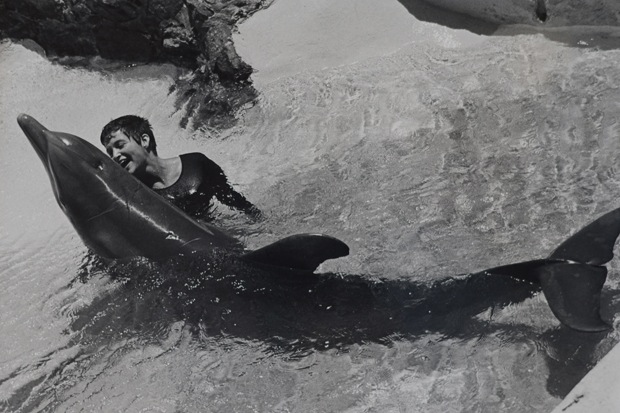As in many thrillers, the characters on display in Flesh and Blood (ITV, Monday to Thursday) often seemed locked in a fierce competition as to which of them we could trust the least. The early front runner was Mark (Stephen Rea), a retired surgeon whom the not-long widowed Viv (Francesca Annis) introduced to her three grown-up children as her new boyfriend. But was Mark all he appeared to be? And if not, was this necessarily a bad thing — given that what he appeared to be was spectacularly shifty?
Soon, though, the grown-up children had plenty of other people to worry about, including themselves, as they messed up their lives in an impressive variety of ways. Helen (Claudie Blakley), first seen sucking needfully on a gin and tonic, was a high-flying NHS management consultant, whose neglected husband proved susceptible to any ladies pretending to share his interests, however uninteresting. (‘I rewired the whole place myself,’ he told one woman in a pub during a particularly comprehensive description of his DIY activities. ‘Really?’ she replied, leaving him immediately smitten.) Natalie (Lydia Leonard) had spent the past five years waiting for her married lover to initiate a much-promised divorce rather than merely repeating his catchphrase, ‘Leave it with me’. Jake (Russell Tovey), a recovering alcoholic and fitness instructor, was estranged from his own wife after running up huge gambling debts, and now sought to clear them by becoming a gigolo for an older and impeccably empowered local solicitor. But was she actually as happy as she claimed to keep the relationship purely financial?
TV programmes should be forced to let us know in advance if they have a disappointingly inconclusive ending
Meanwhile, coming up fast on the rails in the untrustworthiness stakes was Mary (Imelda Staunton), Viv’s next-door neighbour on the Sussex coast. At first sight, Mary was a classic Good Soul: selfless to the point of self-martyring, a reliable supplier of freshly baked cakes and a woman whose two main ways of announcing her presence were ‘Yoo-hoo’ and ‘It’s only me’.Yet, before long, you couldn’t help noticing that, whenever she turned away from a conversation with the family, her smiling expression was instantly replaced with one of Machiavellian scheming. Nor did she seem any keener than Viv’s children on their mother starting a new life with a new man in a new home.
We knew from the beginning that matters wouldn’t end well — although not how or why. In the opening sequence, police lights flashed away in the darkness as somebody was stretchered into an ambulance. But instead of telling us who it was, the programme then concentrated on the back stories of all concerned, interspersed with scenes of Mary and the siblings lying through their teeth to a poker-faced detective about how happy the family had been before the unspecified ‘incident’. For his part, the detective assiduously avoided so much as a pronoun when referring to ‘the victim’.
ITV obviously thought highly of Flesh and Blood — hence the decision to broadcast it over four consecutive nights: an always-risky strategy that both presupposes and demands a serious degree of viewer commitment. For most of the programme, too, you could see why. Those back stories were intriguingly peeled away in a series of short but unhurried scenes that between them provided a pretty thorough exploration of the human capacity for self-deception. There was also a strong but unforced sense of how sibling bonds can be claustrophobic and reassuring at the same time.
In fact, the longer the drama went on, the more its heart seemed to be in the family relationships rather than the thriller element. Because of the timing, I won’t spoil the ending, but I think I can say that the programme did a fairly good job of spoiling it for itself. Eventually, give or take the odd loose end, we did get a satisfactory answer to the whodunnit — which in this case, of course, included who they dun it to. But then in the very last second came another twist which suggested either that Flesh and Blood had the sort of compulsive need to pile up endless reversals (a kind of twist-Tourette’s) so common in psychological thrillers, or that it was suddenly on the hunt for a second series — which always feels a bit of a swizz when you’ve been watching something for hours in the entirely justified expectation of a complete resolution.
I’ve sometimes wondered about launching a campaign for TV programmes that leave us hanging like this to be forced to let us know in advance. (‘Warning: this series contains swearing, scenes of violence and a disappointingly inconclusive ending.’) Admittedly, if Flesh and Blood had done that, I might have missed out on a well-above-par piece of TV drama, but it was also one that ultimately came across like a sharp and thoughtful family saga with a thriller somewhat uneasily attached.






Comments